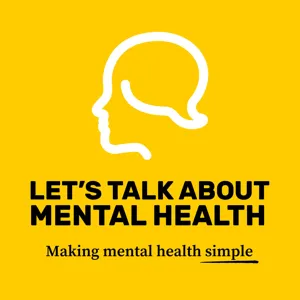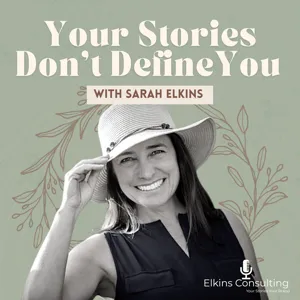Podcast Summary
Personal experiences with changing relationships to habits: Self-reflection and understanding cultural contexts are important for reassessing relationships with habits and adjusting to changing societal norms.
Our relationships with habits, like alcohol consumption, can change over time and lead us to reassess their impact on our lives. The speaker shares his personal experience of how his drinking habits evolved and the consequences he faced, leading him to reconsider his relationship with alcohol. Additionally, the speaker offers an observation about Dublin comedians making jokes about other regions in Ireland during their performances, suggesting that these jokes may no longer resonate with audiences as they once did due to increased cultural connections and experiences beyond their local areas. Overall, the podcast episode highlights the importance of self-reflection and understanding the evolving cultural contexts around us.
The democratization of culture through the internet eliminates cultural scarcity: In today's world, everyone has access to a wealth of cultural experiences and information, breaking down the barriers of cultural scarcity and promoting a more inclusive, shared identity
The concept of cultural scarcity, where certain experiences or art can only be accessed in specific locations, no longer exists due to the widespread availability of information and culture through the internet. This was illustrated in a story about a young person in Limerick discovering the film "Trainspotting" and having to travel to Dublin to see it. The speaker reflects on how, in the past, Dublin was seen as the cultural hub of Ireland, but now, with the democratization of culture, everyone is a "culture" no matter where they're from. This shift from a colonial mindset to a more inclusive one is reflected in the use of the term "pale," which originally referred to the area around Dublin where English customs were dominant, but now is used more lightheartedly to refer to anyone as a "culture." The speaker encourages Dubliners to embrace this new identity and celebrate their shared Irishness, rather than clinging to outdated notions of superiority based on access to consumer goods.
Understanding Cultural Differences in Urbanization: Not all cultures aspire to Western lifestyles, and it's crucial to respect and embrace cultural differences in urbanization.
The perception of culture and urbanization varies greatly, and it's essential to understand that not all cultures desire to emulate Western lifestyles. The speaker uses the example of rapidly developing Chinese cities versus the perceived urbanity of Dublin to illustrate this point. Furthermore, the term "culture" originated from the Irish phrase "Culon Tea," meaning the back of the house, and it's important to remember that everyone in Ireland is in the same boat, figuratively speaking. The speaker also shares a humorous anecdote about accidentally buying stolen trousers at a self-service checkout and the resulting predicament. Despite the mishap, the speaker remains lighthearted and emphasizes the importance of solidarity and acceptance among different cultures and backgrounds.
Forgot trousers with security tag: Turning an embarrassing situation into an opportunity: Even in embarrassing situations, we can choose to breathe mindfully, accept the reality, and use it as an opportunity for personal growth and resilience
Even in unexpected and embarrassing situations, we have the power to turn them into opportunities for personal growth. The speaker in this discussion found himself in such a situation when he forgot his trousers with a security tag attached to them at home. Instead of letting his social anxiety take over, he chose to breathe mindfully, accept the situation, and use it as an exercise in confronting his fear. He walked around his office and even met an old friend in the street with the security tag on his thigh, and no one seemed to notice or care. This experience reminded him of his past struggles with social anxiety and how he had overcome it through exposure therapy. By embracing the situation and focusing on his needs, he turned it into a useful exercise in resilience and mental strength.
Facing fears and proving them wrong: Challenging irrational fears, taking responsibility, and facing them can shift fear from mind to heart, reducing anxiety's power.
Overcoming social anxiety involves facing your fears head-on and proving to yourself that the consequences are not as dire as you imagine. The speaker shares an experience of deliberately knocking over a waste paper basket in a library, something that would have once triggered intense anxiety and fear of public shame. However, by acknowledging and accepting the attention, putting things back in order, and continuing with daily activities, the speaker was able to demonstrate to themselves that the fear was unfounded. This small act of exposure therapy helped shift the thought from their head to their heart, reducing the power of the anxiety. It's essential to challenge irrational fears, take responsibility for our actions, and not allow them to disrupt our day or self-talk. The next time you face a fear, remember that the fear may be stronger in your head than in reality, and taking small steps to face it can lead to significant progress.
Small incidents can cause big mental health issues: Addressing small emotional issues promptly can prevent negative thought cycles and improve mental health
Small incidents can spiral into significant mental health issues if not addressed in the moment. The speaker shares an experience of a trouser tag causing shame and anxiety, leading to missed deadlines, low self-esteem, and a cycle of negative thoughts. They emphasize the importance of emotional regulation and seeking help from others to prevent an emotional hijack. The speaker also reflects on their autistic tendencies, which may have led them to find less socially acceptable solutions. Ultimately, they emphasize the importance of addressing small issues before they grow into larger problems for mental health.
Choosing how to respond to unexpected challenges: Embrace the unexpected and respond rationally instead of letting fear take over. Support independent creators financially if you find value in their content.
We all face unexpected challenges in life, and it's essential to choose how we respond. The speaker shared an experience where he was confronted with a security tag on his trousers and had a choice between letting it bother him or embracing it. He decided to wear it proudly and move on from the strange looks he received. This situation served as a reminder that life can be unpredictable, and it's crucial to regulate our emotions and respond rationally instead of letting fear take over. Additionally, the speaker emphasized the importance of supporting independent creators, like podcasts, and encouraged listeners to contribute financially if they find value in the content.
Supporting independent podcasts and live events: Engaging with independent podcasts, buying tickets to live events, and discussing important issues can significantly help podcasters and address societal issues like the housing and rent crises.
Supporting independent podcasts through reviews and following them can significantly help podcasters, especially those planning tours and releasing new books. For instance, the speaker is announcing a tour of England and Scotland in November, which includes London, Manchester, Liverpool, Coventry, and Edinburgh. Tickets are available at feign.co.ukforward/blindbuy starting this Friday at 10 AM. Additionally, the speaker will be hosting live podcasts in Cork Opera House, Vicar Street in Dublin, Monaghan, Belfast, and Vicar Street in Ireland. Another critical issue discussed was the damning report revealing that 68% of Irish adults between the ages of 25 and 35 are still living with their parents due to the housing and rent crises. The speaker emphasized the importance of using the term "adults" instead of "young people" to accurately describe the situation. This issue is a significant indictment of the system and a call to action for addressing the root causes of the housing and rent crises. The speaker encourages listeners to support independent podcasts, engage in discussions on important issues, and consider attending the upcoming live events.
The definition of adulthood and when it starts is debated: Neuroscientists challenge the trend that adulthood doesn't begin until age 25, emphasizing personal autonomy and control as key markers of adulthood.
The perception of adulthood and when it begins has changed over time. When the speaker was growing up, they and their peers were considered adults in their late teens, but now there's a trend, especially on social media, that argues adulthood doesn't start until age 25 due to brain development. However, neuroscientists disagree with this one-size-fits-all approach. The speaker also shares their personal experience of feeling like an adult at 18 but having to move out and become fully independent at 21 due to societal pressure. They emphasize that adulthood is about having control over one's life and making concrete decisions, which is challenging when living with parents. The speaker's journey towards mental health and self-esteem was significantly influenced by their actions and behaviors, such as doing their own laundry and cooking their own meals, which they couldn't do while living with their parents. Overall, the discussion highlights the complex and evolving nature of adulthood and the importance of personal autonomy.
Experiencing autonomy crucial for mental health and self-confidence: Achieving independence from parents promotes mental health, self-confidence, and personal growth. Delayed adulthood may hinder these benefits.
Achieving a sense of autonomy and adult identity is crucial for mental health and self-confidence. This feeling of independence, where one no longer relies on parents for support, can lead to a stronger sense of self and the ability to view parents as equals. However, this experience is becoming less common as the average age for moving out is increasing, potentially hindering personal growth and development. This feeling of autonomy is not just about practical matters, but also about the psychological benefits it brings, such as increased self-esteem and the confidence to pursue goals. Without it, individuals may struggle to reach their full potential.
Navigating Life as a Young Adult: Leaving the Nest for Autonomy: Young adults need to leave their parents' home to develop autonomy and a strong sense of self. Living with parents long-term can negatively impact self-esteem and sense of identity. Striving for independence and self-sufficiency is crucial for a solid foundation in life.
Achieving a strong sense of self and autonomy is crucial for young adults as they navigate their way through life. This involves leaving the nest, or moving out of their parents' home, to learn to fly on their own. However, with an increasing number of adults aged 25 to 35 still living with their parents, concerns arise about their ability to develop a solid sense of self and autonomy. The regression of maturity and the loss of autonomy that can occur when returning home for short periods during holidays is a common experience. For those living with their parents long-term, the lack of autonomy and the continued reliance on childhood roles can negatively impact their self-esteem and sense of identity. It's essential for young adults to strive for independence and self-sufficiency to build a strong foundation for their future.
Understanding Ego States and Their Impact on Our Reactions: Recognizing and managing our ego states helps us communicate effectively, respond to situations with self-esteem, and avoid regression to child or parent behaviors.
Our reactions to everyday situations can be influenced by our unconscious ego states, specifically the parent, child, and adult states. These ego states, according to transactional analysis, shape how we communicate and respond to others based on past experiences. When we're triggered, we may regress to the parent or child state, reacting with anger or fear, respectively. However, being aware of these states and practicing emotional regulation as an adult can help us respond effectively and maintain a strong sense of self-esteem, self-worth, and autonomy. It's crucial to recognize the difference between seeking guidance from parents as a child and relying on our own adult abilities. Living with parents as adults can be challenging, but maintaining our adult ego state and avoiding regression is essential for personal growth and independence.
Complexities of living with parents in adulthood: Living with parents in adulthood can lead to emotional distress and confusion around adult intimacy and identity due to complications in adult discourse and the resurfacing of childhood memories and feelings of judgment.
The high percentage of 25 to 35 year old adults in Ireland who live with their parents can lead to complications in their adult lives, particularly in handling relationship issues. These complications arise due to the difficulty in engaging in autonomous adult discourse with parents, often resulting in critical exchanges that bring up childhood memories and feelings of judgment. This can prevent necessary conversations from happening, leading to emotional distress and confusion around adult intimacy and identity. The societal focus on the material impacts of living with parents overlooks the psychological implications, which can significantly impact a person's sense of self and adulthood. By referring to this demographic as "young people," politicians and society at large can avoid addressing these complex issues.
Maintaining Adult Identity in Parents' Home: Recognize potential dangers of falling back into childhood behaviors, strive for independence, and tackle life's challenges with an adult mindset.
Maintaining a strong sense of adult identity is crucial for feeling capable of participating in society and making changes in one's life. For those living with their parents, it can be challenging to establish and maintain this autonomy, especially when faced with old behavioral patterns. It's essential to recognize the potential dangers of falling back into childhood behaviors and instead strive to live as independently as possible within one's parents' home. This not only benefits self-esteem and confidence but also enables the ability to tackle life's challenges with an adult mindset. So, if you're in this situation, consider taking on additional responsibilities and making a conscious effort to live as autonomously as possible.
Maintaining Identity and Appreciating Moms: Celebrate moms by expressing gratitude and giving thoughtful gifts, while recognizing the importance of personal identity and self-esteem for individuals, especially mothers.
It's important for individuals to maintain their adult identity, autonomy, and self-esteem, even when feeling burnt out. This was the main theme discussed in the podcast, which also touched upon the importance of appreciating and giving back to the mothers in our lives. The podcast took an unusual turn with a story about trousers, but the underlying message remained clear. This Mother's Day, consider expressing your gratitude to the "mamas, bonus moms, office moms, and moms of moms" with thoughtful gifts from 1-800-Flowers. With handmade bouquets, sweet treats, gourmet food, and unique presents, you can celebrate your amazing moms and save up to 40% on Mother's Day bestsellers. Don't miss this opportunity to show your love and appreciation – order today at 1800flowers.com/acast.





